PHOTOS: A market for endangered species in Indonesia
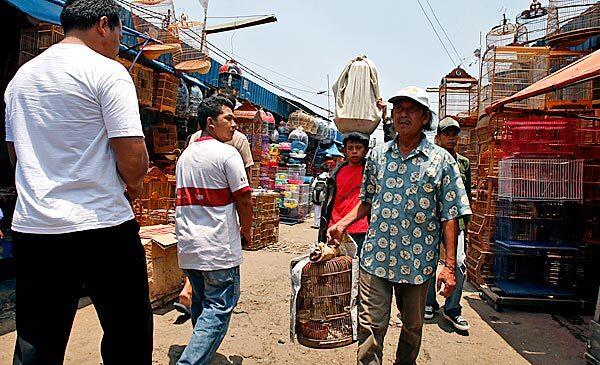
The Jatinegara Market in Jakarta, Indonesia, bustles daily with people buying and selling all kinds of animals, legally and illegally. Poaching has become one of the biggest environmental problems in Indonesia, where nearly every species of animal out of 230 on the country’s endangered species list can be bought at the capital’s teeming market. (Luis Sinco / Los Angeles Times)
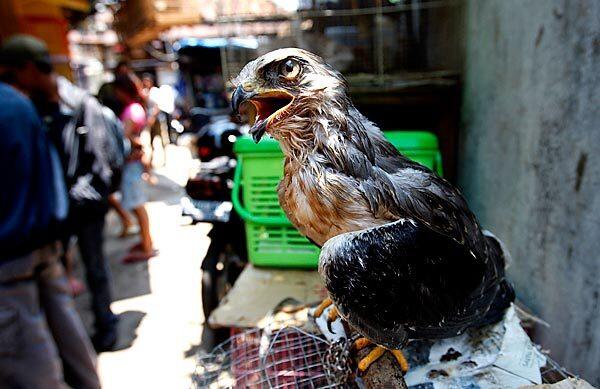
An eagle chick chained to a perch awaits a buyer in the Jatinegara market. Eaglets are often sold for the equivalent of about $20. (Luis Sinco / Los Angeles Times)
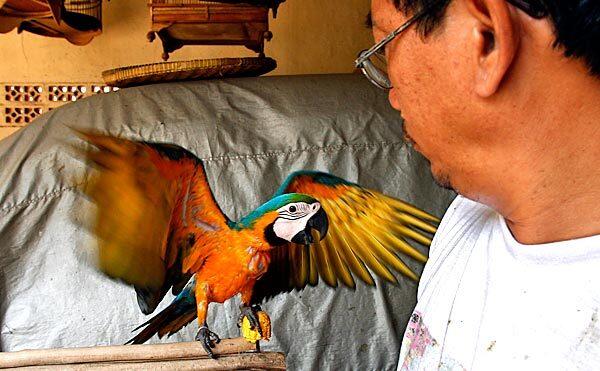
A bird vendor at the Jakarta market offers up a macaw. Laws prohibit poaching and the sale of poached animals, but enforcement is, in many places, nonexistent. (Luis Sinco / Los Angeles Times)
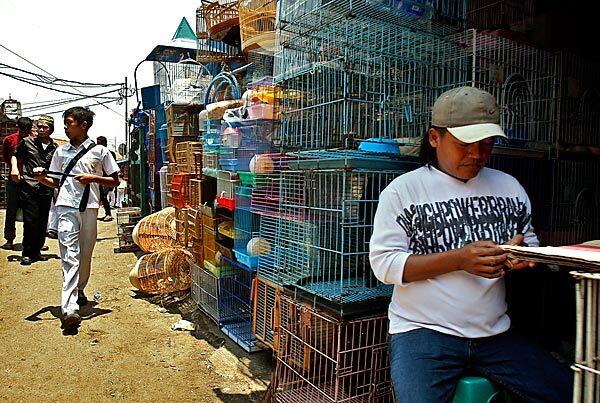
Bird stalls crowd along a lane in Jakarta’s Jatinegara market, which bustles daily with people buying and selling all manner of animals, both legally and not. Activists say the underground trade reaps between $10 million and $20 million annually. (Luis Sinco / Los Angeles Times)
Advertisement
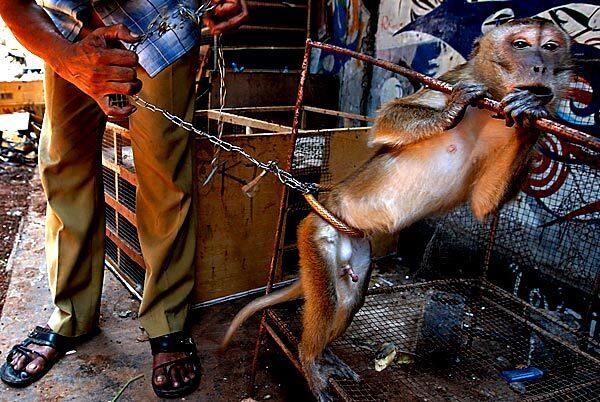
An animal trader chains a macaque to a dilapidated cage in the Pramuka market in Jakarta. Trade in macaques and other common primate species is not illegal in Indonesia, but they are commonly caged in inhumane conditions while they wait to be sold. Pramuka is the largest animal market in Southeast Asia, with more than 370 stalls selling all manner of common and endangered species. (Luis Sinco / Los Angeles Times)
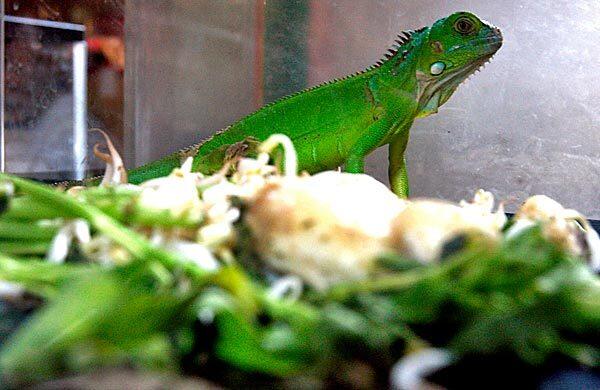
A young iguana housed in a small terrarium awaits a buyer in the Pramuka market. More than 230 species of Indonesian animals are on the endangered list, but all can be bought for a price at the market, where traders have them hidden, or ready for clients who paid in advance. (Luis Sinco / Los Angeles Times)
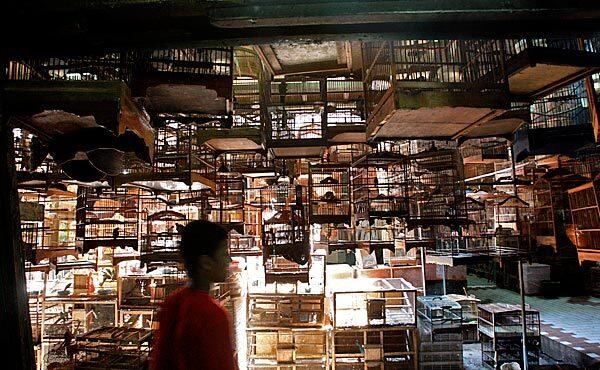
Thousands of birds are caged for sale in the sprawling Pramuka Market of Jakarta, Indonesia. Many of the birds are quite rare or listed as endangered. At some markets here, a deposit of just $50 can get a customer a tiger, endangered monkey or orangutan delivered in a week. (Luis Sinco / Los Angeles Times)
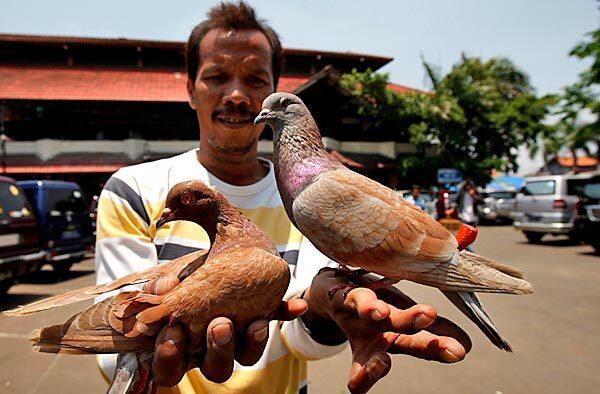
A vendor hawks pigeons in the Pramuka market. The bird on the right has a whistle inserted into its anus which produces high-pitched sounds when the bird is in flight. Animal rights activists say that such treatment of animals is inhumane. (Luis Sinco / Los Angeles Times)
Advertisement
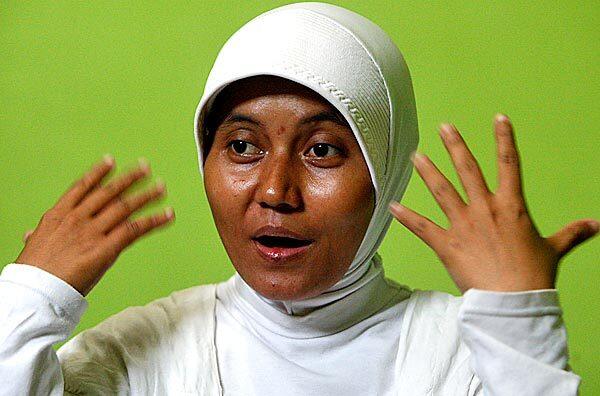
Irma Hermawati shows the scarf she wears when going undercover in her efforts expose the trade in endangered animals in Jakarta. The 31-year-old is an investigator with the nonprofit group ProFauna, which lobbies on behalf of the archipelagos jungle creatures. She plans sting operations against well-organized poaching rings that extend across the archipelago. (Luis Sinco / Los Angeles Times)
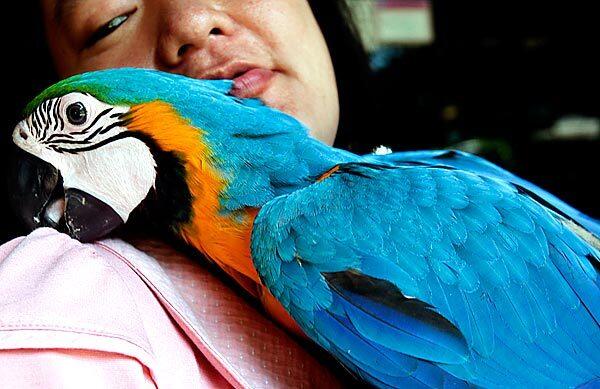
A woman handles a colorful macaw in the Pramuka market. Macaw sellers commonly claim to have locally bred the birds, which are native to South America. However, animal rights activists allege that the birds are usually imported illegally. Its alarming to see that Indonesias list of protected species is getting longer, not shorter, said activist Hermawati. People want medicine and exotic pets. If an animal is protected and therefore expensive, they think it gives them status to own it. (Luis Sinco / Los Angeles Times)



